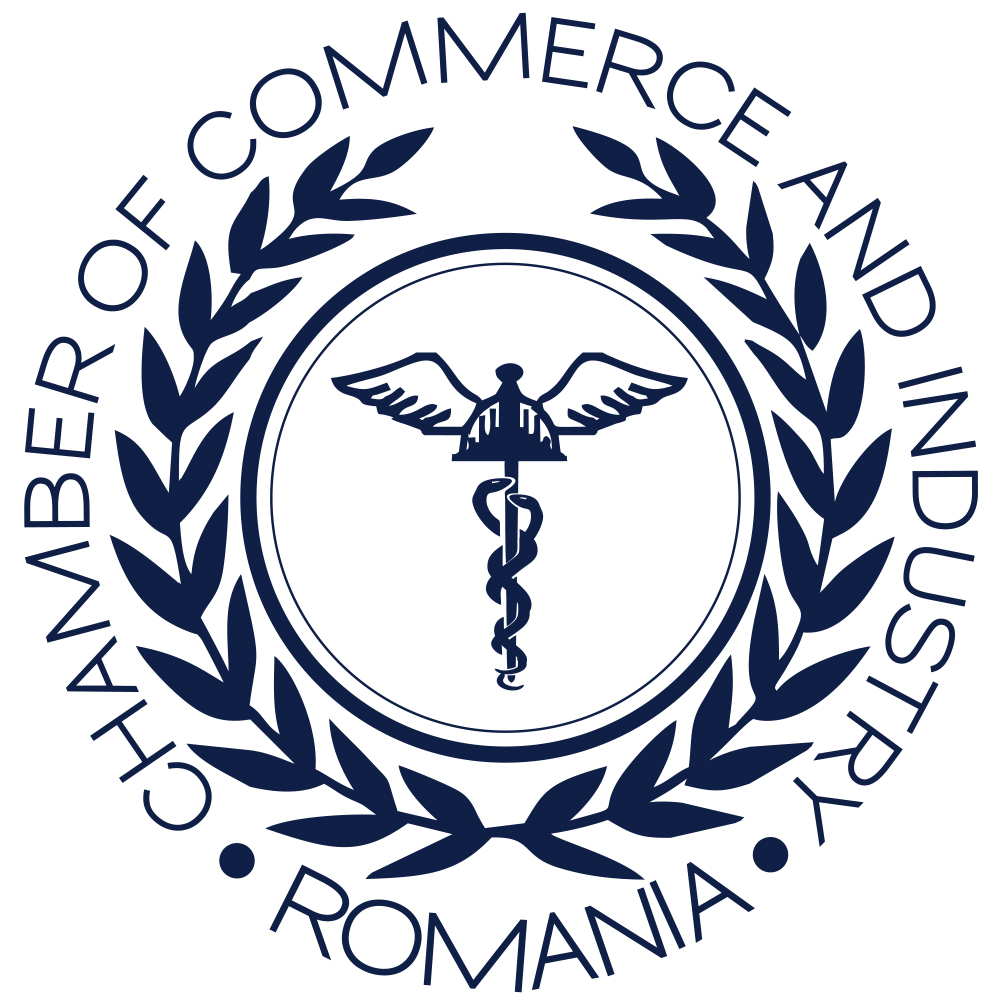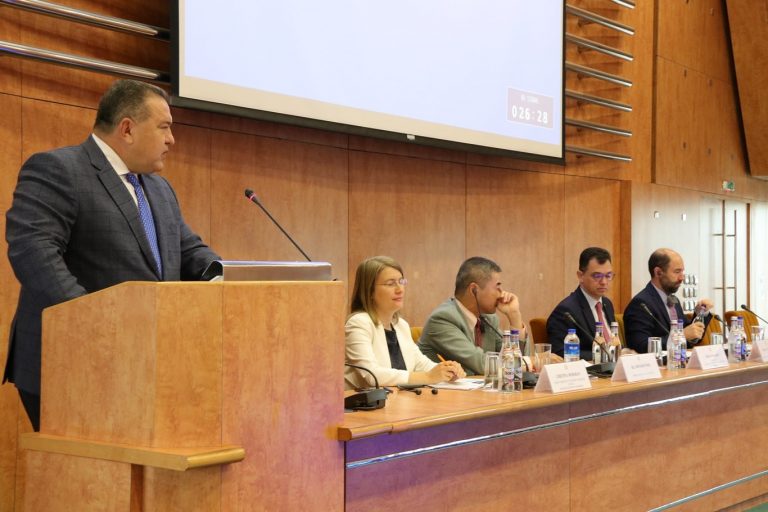The EU Free Trade Agreements discussed at the CCIR conference
Publicat pe 17/09/2019
Bucharest, September 17th, 2019: The Chamber of Commerce and Industry of Romania (CCIR), with the support of the European Commission in partnership with the Embassy of Canada in Romania, Bulgaria and the Republic of Moldova and the Ministry for the Environment, Trade and Entrepreneurship, organized on September, 17th, the conference entitled: “Opportunities brought by EU free trade agreements and challenges faced by business people. How can we capitalize on EU trade policy?”
The central theme of the event concerned the European Union’s trade policy, with an emphasis on the importance of the latest free trade agreements concluded by the EU with countries such as Canada, Japan, Vietnam, and the Mercosur region. The Romanian Chamber of Commerce and Industry has launched extensive information and promotion campaigns among Romanian entrepreneurs to make known the benefits of these agreements in our country.
The President of CCIR, Mr. Mihai Daraban, mentioned a number of advantages that came with the signing of agreements between the EU and the states involved, with direct impact on the Romanian economy: “Two years after the provisional entry into force of the comprehensive economic and trade agreement between EU and Canada, we see a significant increase of the Romanian exports to Canada, from 105.4 Million Euros in 2016 to 193.6 Million in 2017. (…) In the first 5 months of 2019 and 4 months after entering in force of the Economic Partnership Agreement, Romania’s exports to Japan reached 109.8 Million Euros, 109.4% more than exports in 2018 in the same period, and imports from Japan increased by 84% over the same period in 2018, reaching the figure of 128.7 million euros”.
Mr. Ștefan Radu Oprea, Minister for the Environment of Business, Trade, and Entrepreneurship, said: “The windows of opportunity opened by the trade and investment agreements of the European Union are closing fast in a dynamic and globalized market. Therefore, I invite you to take advantage of the benefits that these agreements bring to the Romanian exporters through the tools that the Ministry for the Environment for Business, Trade, and Entrepreneurship offers to the business environment. Start Export is the project that I propose this year and that means to talk in Romania, more and more, about export, on the entrepreneurial model. Entrepreneurs must know very well what export means, education in this regard is the main pillar. We need to learn together to participate in a fair, for example. There is a difference between being an exhibitor or just a visitor. Cultural differences need to be understood very well, because in some ways business is being done in Japan, otherwise in the Middle East or Egypt”.
Mrs. Cristina Modoran, Policy Assistant to the Deputy Director-General, DG Trade, European Commission, said: “If we look at the world map, we see that there are important regions with which the European Union has concluded trade agreements, but also areas where they do not exist and where we meet challenges. In his matter, I refer, in particular, to the United States of America and China, countries with which we have started negotiations. Trade agreements attract significant benefits for the states involved, such as increasing the number of jobs. At present, one-fifth of jobs are supported by exports. Romania is below the European average from this point of view but has a very high growth potential”.
Mr. Stéphane Lambert, Counselor and Head of Trade, economic and Science& Technology Policy, Mission of Canada to the European Union, said: “CETA is a fairly new agreement and the results were not delayed. Thus, at the level of the European Union, there is a 9% increase in trade in goods and a 7% advance in services. This agreement has created an increase in jobs by stimulating exports and lowering costs for companies. However, more time and more data are needed to see the full impact of CETA on both Canadian and EU trade and other sectors of the economy, such as foreign direct services and investments”.
H.E. Mr. Hitoshi Noda, Ambassador of Japan to Romania, said: “This year is one of the most important for Japan because of the agreement with the European Union. It is the largest trade agreement in the world that involves components other than business, namely, human rights, democratic principles and the rule of law. This agreement entails many opportunities which unfortunately are not exploited to their full potential. My advice for Romanian business people is to be aggressive in this market and not to waste time. You have chances of success, but you are not alone. There are opportunities, but not just for you. Be creative and have initiative!”
Background:
The conference “Opportunities brought by EU free trade agreements and challenges faced by business people. How can we capitalize on the EU’s trade policy?” is a continuation of the steps initiated by the Chamber of Commerce and Industry of Romania in 2017, which were meant to promote the free trade agreements concluded by the EU with various third countries, in order to inform Romanian business people about the existing internationalization opportunities.
In 2017, the CCIR together with the Canadian Embassy in Romania organized various seminars, press conferences, and workshops aimed at promoting the comprehensive economic and trade agreement between the EU and Canada (CETA), which entered in force, provisionally, on September 21st, 2017. This agreement financially relieves companies by saving substantial amounts on goods tariffs. CETA eliminated the taxes for 98% of the products from the first day it was implemented. Also, import procedures and formalities have been simplified, where possible, for a wide range of products.
Also, in the period 2018-2019, CCIR together with the Embassy of Japan in Romania carried out an information and promotion campaign among the Romanian entrepreneurs regarding the opportunities to expand the businesses as a result of the signing and, later, the entry into force of the Agreement of the EU-Japan Economic Partnership, on February 1st, 2019. After full implementation of the agreement, by 2035, tariffs for more than 90% of EU exports to Japan will be abolished, and Japan will eliminate customs duties for 97 % of goods imported from the EU. Under these conditions, EU exporters will save about 1 billion euros per year representing customs duties.
On June 30th, 2019, in Hanoi, EU and Vietnam signed two agreements: a free trade agreement and an investment protection agreement. The EU-Vietnam Free Trade Agreement is the most ambitious agreement of its kind ever concluded with a developing country. It provides for the almost total elimination (99%) of customs duties between the two blocks. 65% of EU export taxes to Vietnam will disappear as soon as the free trade agreement enters into force, with the remainder being phased out over to 10 years. And in the case of this agreement, the CCIR disseminated the information among the business people.



